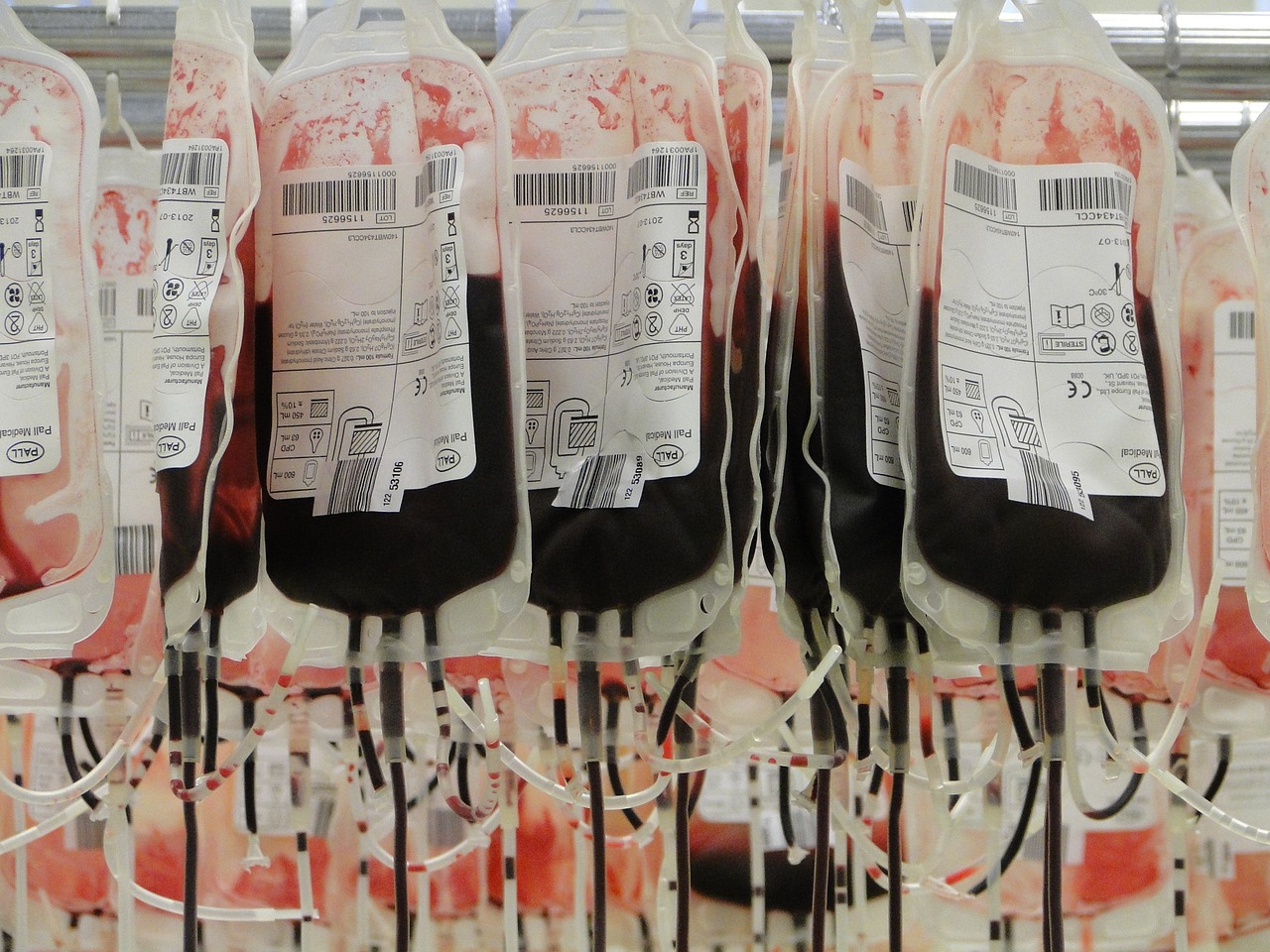This article delves into the myriad health benefits, potential risks, and practical insights associated with a 3-day water fast. It aims to provide comprehensive information for those contemplating this fasting method for detoxification and overall health enhancement.
What is a 3-Day Water Fast?
A 3-day water fast entails abstaining from all food and consuming only water for a duration of 72 hours. This practice is gaining popularity for its purported health benefits, including detoxification and metabolic improvements.
Health Benefits of a 3-Day Water Fast
- Weight Loss and Fat Burning: Engaging in a 3-day water fast prompts the body to transition from using glucose to burning fat for energy. This metabolic shift can lead to significant weight loss and fat reduction.
- Improved Mental Clarity and Focus: Many individuals report heightened mental clarity and focus during a water fast. This is largely attributed to reduced digestive workload and a more stable energy supply from fat stores.
- Detoxification and Cellular Repair: Fasting may facilitate detoxification, allowing the body to eliminate toxins and initiate cellular repair processes, contributing to overall health enhancement.
Understanding Autophagy: A notable benefit of fasting is the activation of autophagy, a natural process where cells clean out damaged components. This not only promotes cellular health but may also enhance longevity.
Reduction of Inflammation: Numerous studies suggest that fasting can decrease inflammation markers in the body, potentially lowering the risk of chronic diseases such as heart disease and diabetes.
Potential Risks of a 3-Day Water Fast
Despite its benefits, a 3-day water fast may pose risks, particularly for certain individuals. Risks include:
- Dehydration: Insufficient water intake can lead to dehydration, which may manifest as dizziness and fatigue.
- Nutrient Deficiencies: Extended fasting can result in nutrient shortfalls, affecting overall health.
- Adverse Health Effects: Individuals with specific medical conditions or those who are pregnant should avoid water fasting.
Preparing for a 3-Day Water Fast
Proper preparation is crucial for a successful water fast. Here are some tips:
- Dietary Adjustments: Gradually reducing food intake and eliminating processed foods before starting can ease the transition.
- Mental Preparation: Techniques such as meditation and setting clear goals can enhance motivation and commitment to the fast.
Breaking the Fast: Best Practices
The way you reintroduce food after completing a 3-day water fast is vital for health. Consider the following:
- Recommended Foods: Start with light, easily digestible foods such as broths and fruits to minimize digestive discomfort.
- Hydration Post-Fast: Gradually increasing fluid intake is essential to restore hydration levels and support recovery.
In summary, a 3-day water fast can offer numerous health benefits, including weight loss, improved mental clarity, and detoxification. However, it is essential to approach this fasting method with caution, especially for individuals with underlying health conditions. Proper preparation and mindful reintroduction of food can enhance the fasting experience and promote overall well-being.

What is a 3-Day Water Fast?
A 3-day water fast is a form of fasting where an individual abstains from all food and consumes only water for a continuous period of 72 hours. This practice has gained popularity among health enthusiasts and those seeking to improve their overall well-being. During this fasting period, the body undergoes several physiological changes that can lead to various health benefits.
The primary goal of a 3-day water fast is to allow the body to enter a state of ketosis, where it shifts from using glucose as its primary energy source to utilizing stored fat. This metabolic switch not only helps in weight loss but also promotes the detoxification process, as the body works to eliminate accumulated toxins.
Health Benefits of a 3-Day Water Fast
- Enhanced Metabolic Health: Fasting can improve insulin sensitivity and lower blood sugar levels, contributing to better metabolic health.
- Weight Loss: As the body burns fat for energy, individuals may experience significant weight loss during this period.
- Improved Mental Clarity: Many report heightened focus and cognitive function as the body conserves energy by reducing the digestive workload.
Detoxification and Cellular Repair
One of the most notable aspects of a 3-day water fast is its potential to promote detoxification. This process allows the body to eliminate toxins and initiate cellular repair mechanisms. During fasting, the body activates autophagy, a natural recycling process that removes damaged cells and promotes cellular health.
Potential Risks of a 3-Day Water Fast
While there are numerous benefits associated with a 3-day water fast, it is essential to recognize potential risks. Individuals with certain medical conditions, pregnant women, and those with a history of eating disorders should avoid this fasting method. Additionally, signs of dehydration and malnutrition, such as dizziness and fatigue, should be monitored closely.
Preparing for a 3-Day Water Fast
Proper preparation is crucial for a successful fasting experience. Gradually reducing food intake and eliminating processed foods in the days leading up to the fast can ease the transition. Mental preparation, including techniques such as meditation and goal-setting, can enhance motivation and commitment to completing the fast.
Breaking the Fast: Best Practices
How one breaks a 3-day water fast is just as important as the fast itself. It is advisable to reintroduce food gradually, starting with light, easily digestible options such as broths and fruits to minimize digestive distress. Additionally, rehydration is vital; gradually increasing fluid intake can help restore hydration levels and support recovery.
In summary, a 3-day water fast can be a transformative experience, offering numerous health benefits while requiring careful consideration of potential risks. With the right preparation and understanding, individuals can embark on this fasting journey effectively.

Health Benefits of a 3-Day Water Fast
Engaging in a 3-day water fast can lead to numerous health benefits, making it an increasingly popular choice among health enthusiasts. This fasting method not only promotes weight loss but also enhances metabolic health and mental clarity. In this section, we will delve deeper into the various health advantages associated with a 3-day water fast.
One of the most significant benefits of a 3-day water fast is the improvement in metabolic health. During this fasting period, the body undergoes several metabolic changes that can enhance its overall efficiency. Research indicates that short-term fasting can increase insulin sensitivity, which is crucial for managing blood sugar levels. Improved insulin sensitivity can help in reducing the risk of type 2 diabetes and support better energy utilization.
Many individuals report experiencing enhanced mental clarity during a 3-day water fast. This effect is often attributed to the body’s transition from glucose to fat as its primary energy source. When the body starts utilizing ketones produced from fat, it can lead to improved cognitive function and focus. Additionally, the reduction in digestive workload allows more energy to be directed towards brain function, further contributing to heightened mental acuity.
Weight loss is another prominent benefit of a 3-day water fast. As the body depletes its glycogen stores, it begins to burn stored fat for energy, leading to significant fat loss. This process, known as lipolysis, can result in noticeable changes in body composition. Moreover, the caloric deficit created by fasting encourages the body to utilize fat reserves, making it an effective strategy for those looking to shed excess weight.
During a water fast, the body efficiently transitions to fat utilization, which can enhance energy management. The increase in norepinephrine levels during fasting stimulates fat breakdown, further aiding in weight loss efforts. This hormonal response not only promotes fat burning but also helps in maintaining muscle mass, which is essential for long-term weight management.
A 3-day water fast can also facilitate detoxification and cellular repair. This fasting period allows the body to focus on eliminating toxins and initiating vital repair processes. The process of autophagy, triggered during fasting, enables cells to remove damaged components, thereby contributing to overall cellular health and longevity.
Research suggests that fasting can lead to a reduction in inflammation markers within the body. Lower levels of inflammation are associated with a decreased risk of chronic diseases, such as heart disease and cancer. By promoting an anti-inflammatory environment, a 3-day water fast can support better overall health.
While there are numerous benefits, it is essential to consider potential risks associated with a 3-day water fast. Individuals with certain medical conditions, pregnant women, and those with a history of eating disorders should approach fasting with caution.
During a water fast, it is crucial to monitor for signs of dehydration and malnutrition. Symptoms such as dizziness, fatigue, and confusion may indicate that the body is not receiving adequate hydration or nutrients. It is vital to stay attentive to these signs to ensure a safe fasting experience.
Proper preparation is key to a successful 3-day water fast. Gradually reducing food intake and focusing on hydration before the fast can enhance the experience and outcomes. Mental readiness, through techniques such as meditation or goal-setting, can also play a significant role in maintaining motivation throughout the fasting period.
How one breaks a 3-day water fast is critical for health and well-being. Starting with light, easily digestible foods, such as broths and fruits, can minimize digestive distress. Additionally, rehydrating gradually is crucial to restoring hydration levels and supporting recovery.
Weight Loss and Fat Burning
are two of the most sought-after benefits of a 3-day water fast. During this period, the body undergoes significant metabolic changes that can enhance fat utilization and promote weight loss.
Initially, the body relies on glucose, derived from carbohydrates, as its primary energy source. However, as the fasting period progresses, typically after 24 hours, the body depletes its glycogen stores and shifts to fat oxidation for energy. This metabolic shift is crucial for weight loss, as it encourages the body to burn stored fat rather than relying on incoming calories from food.
One of the key mechanisms behind this fat-burning process is the creation of a caloric deficit. When fasting, individuals consume no calories, which forces the body to tap into its fat reserves for energy. This transition not only promotes fat loss but also leads to improvements in body composition, as the body becomes more efficient at utilizing fat as fuel.
Moreover, research indicates that short-term fasting can enhance metabolic rate. Studies have shown that fasting increases the levels of norepinephrine, a hormone that stimulates fat breakdown. This increase can lead to a higher rate of fat burning, making fasting an effective strategy for those looking to shed excess weight.
In addition to fat burning, a 3-day water fast can also have positive effects on insulin sensitivity. Improved insulin sensitivity can help regulate blood sugar levels and further support weight loss efforts. When the body becomes more sensitive to insulin, it can better manage blood glucose levels, reducing the likelihood of fat storage.
Another benefit of fasting is the potential reduction in hunger hormones, such as ghrelin. During a fast, levels of ghrelin can decrease, which may lead to reduced appetite and cravings. This can make it easier for individuals to adhere to their fasting regimen and ultimately achieve their weight loss goals.
However, it is essential to approach a 3-day water fast with caution. While the benefits can be substantial, individuals should be aware of the potential risks associated with prolonged fasting, such as dehydration and nutrient deficiencies. It is crucial to listen to your body and consult a healthcare professional before embarking on a fasting journey, especially for those with pre-existing health conditions.
In conclusion, a 3-day water fast can serve as an effective method for weight loss and fat burning. By shifting the body’s energy source from glucose to fat, individuals can experience significant reductions in body fat and improvements in metabolic health. Nonetheless, proper preparation and understanding of the risks involved are essential for a safe and successful fasting experience.
Caloric Deficit and Fat Utilization
A caloric deficit is a key factor in weight loss and overall body composition improvement. When the body is in a state of caloric deficit, it means that it is consuming fewer calories than it expends. This leads to the utilization of stored energy, primarily in the form of fat, to meet its energy needs. One effective way to achieve this caloric deficit is through a 3-day water fast.
During a water fast, the body undergoes significant metabolic changes. Initially, it relies on glucose reserves stored in the liver and muscles for energy. However, as these reserves deplete, the body transitions to a process known as ketosis, where it begins to burn fat for fuel. This metabolic shift not only promotes fat loss but also helps improve body composition by reducing body fat percentage while potentially preserving lean muscle mass.
Research indicates that fasting can lead to an increase in norepinephrine, a hormone that plays a crucial role in fat breakdown. This hormone enhances the body’s ability to mobilize fat stores, making them available for energy production. As a result, individuals engaging in a 3-day water fast may experience enhanced fat burning, leading to noticeable weight loss.
Moreover, the caloric deficit created during the fast can have additional benefits beyond just weight loss. It may also promote improved insulin sensitivity, which is essential for metabolic health. By reducing insulin levels, the body becomes more efficient at utilizing fat as an energy source, further supporting weight loss and overall health.
However, it is important to approach a water fast with caution. While the benefits of caloric deficit and fat utilization are significant, individuals must be aware of their body’s signals. Signs of fatigue, dizziness, or excessive weakness can indicate that the body is not coping well with the fast. Therefore, monitoring one’s health during this period is essential.
In addition, proper preparation before initiating a 3-day water fast can enhance its effectiveness. Gradually reducing caloric intake and eliminating processed foods in the days leading up to the fast can help the body adjust more easily to the absence of food. This preparation phase can also help mitigate potential side effects, making the fasting experience more manageable.
After completing the fast, it is crucial to break it correctly to maintain the benefits achieved during the fasting period. Starting with light, easily digestible foods can help ease the digestive system back into its routine without causing distress. This careful approach ensures that the body continues to thrive post-fast, maintaining the improvements in body composition and overall health.
In summary, a water fast creates a caloric deficit that compels the body to utilize stored fat for energy. This process not only promotes fat loss but can also enhance metabolic health and improve body composition. For those considering this fasting method, understanding the mechanisms at play and preparing adequately can lead to a successful and beneficial experience.
Impact on Metabolism
Short-term fasting has garnered significant attention in recent years, particularly for its potential effects on metabolism and weight management. One of the key mechanisms at play during a fasting period is the increase in norepinephrine levels, a hormone that plays a crucial role in fat metabolism. This hormone is released by the adrenal glands and is known to enhance the body’s ability to break down fat stores, thereby facilitating weight loss.
During a 3-day water fast, the body undergoes several metabolic changes. Initially, it utilizes glucose from stored carbohydrates for energy. However, as fasting continues, the body transitions to a state of ketosis, where it begins to burn fat for fuel. This shift not only aids in weight loss but also boosts metabolic rate, making the body more efficient at burning calories.
Research indicates that fasting can increase the levels of norepinephrine in the body, which can lead to a heightened metabolic rate. This increase is particularly beneficial for those looking to shed excess weight or improve their body composition. By enhancing fat oxidation, norepinephrine allows the body to utilize stored fat more effectively, making it an essential player in the weight loss process.
Moreover, the metabolic boost from fasting may also contribute to improved insulin sensitivity. When insulin sensitivity is enhanced, the body is better equipped to manage blood sugar levels, which is vital for overall health. Improved insulin sensitivity can lead to reduced fat storage and promote fat loss, creating a favorable environment for weight management.
It’s important to note that while short-term fasting can offer these metabolic advantages, it is not a one-size-fits-all solution. Individual responses to fasting can vary significantly based on factors such as age, sex, and overall health. Therefore, it is advisable for individuals to consult healthcare professionals before embarking on any fasting regimen.
In addition to weight loss and metabolic benefits, fasting has been linked to other health improvements. For instance, some studies suggest that it may promote cellular repair and reduce inflammation, further enhancing overall metabolic health. The process of autophagy, which is activated during fasting, helps the body eliminate damaged cells and regenerate new ones, contributing to long-term health and vitality.
In summary, short-term fasting can significantly impact metabolism by increasing norepinephrine levels and promoting fat breakdown. This hormonal response not only aids in weight loss but also enhances metabolic efficiency, making fasting a potentially effective strategy for those aiming to improve their health and body composition. However, it is essential to approach fasting with caution and to consider individual health factors before making any drastic dietary changes.
Improved Mental Clarity and Focus
Many individuals undertaking a 3-day water fast report experiencing a significant enhancement in mental clarity and focus. This phenomenon can largely be attributed to the body’s transition from relying on glucose as its primary energy source to utilizing stored fat. As the digestive workload decreases during fasting, the brain receives an increased supply of energy, leading to heightened cognitive function.
During a water fast, the body enters a state called ketosis, where it begins to burn fat for fuel instead of carbohydrates. This metabolic shift not only aids in weight loss but also has profound effects on brain function. The brain is highly adaptable and can efficiently use ketones, which are produced from fat breakdown, as an alternative energy source. This shift is often associated with improved mental performance, including better concentration, enhanced memory, and sharper problem-solving skills.
Moreover, the reduction in the consumption of food allows the body to redirect energy that would typically be used for digestion to cognitive processes. The brain, which consumes a significant portion of the body’s energy, benefits from this increased energy availability, resulting in a clearer and more focused mindset. Many individuals report feeling more alert and capable of tackling complex tasks during this fasting period.
Additionally, fasting has been linked to the release of neurotransmitters such as dopamine and serotonin, which play crucial roles in mood regulation and cognitive function. The elevation of these neurotransmitters can contribute to a sense of well-being and increased motivation, further enhancing mental clarity. Furthermore, some studies suggest that fasting may stimulate the production of brain-derived neurotrophic factor (BDNF), a protein that supports neuron growth and function, thereby promoting long-term cognitive health.
However, it is important to note that while many individuals experience these benefits, results can vary widely based on individual differences, including baseline health status, prior fasting experience, and psychological factors. Individuals new to fasting or those with pre-existing health conditions should consult healthcare professionals before attempting a 3-day water fast.
In summary, a 3-day water fast can lead to enhanced mental clarity and focus due to metabolic shifts and reduced digestive demands. The experience varies among individuals, but many find that the cognitive benefits make the fasting period a worthwhile endeavor. As with any health practice, proper preparation and self-awareness are key to ensuring a positive fasting experience.

Detoxification and Cellular Repair
Detoxification and Cellular Repair are vital processes that can significantly enhance overall health. A 3-day water fast is often touted as an effective method for promoting these processes, allowing the body to reset and rejuvenate. This fasting method not only facilitates the elimination of toxins but also initiates essential cellular repair mechanisms, contributing to improved well-being.
During a 3-day water fast, the body enters a state of ketosis, where it begins to utilize fat stores for energy instead of glucose. This metabolic switch is crucial for detoxification as it encourages the body to release stored toxins that are often trapped in fat cells. As these toxins are mobilized and eliminated, individuals may experience a range of health benefits.
One of the significant advantages of fasting is the activation of autophagy, a natural cellular process where the body cleans out damaged cells and regenerates new ones. This process is essential for maintaining cellular health and has been linked to longevity. By engaging in a 3-day water fast, individuals can enhance autophagy, promoting the repair of cellular components and improving overall cellular function.
Moreover, fasting has been shown to reduce inflammation in the body. Chronic inflammation is a precursor to various diseases, including heart disease, diabetes, and cancer. By lowering inflammation markers, a water fast can potentially decrease the risk of these conditions, leading to better health outcomes.
- Enhanced Immune Function: A 3-day water fast can help boost the immune system by promoting the regeneration of immune cells, which can be beneficial for overall health.
- Improved Digestive Health: With a break from food intake, the digestive system can rest, allowing for improved gut health and function.
- Increased Mental Clarity: Many individuals report heightened mental clarity and focus during fasting, attributed to reduced energy expenditure on digestion and increased production of brain-derived neurotrophic factor (BDNF).
However, it is essential to approach a 3-day water fast with caution. Individuals with pre-existing health conditions or those who are pregnant should consult a healthcare professional before engaging in such fasting practices. Additionally, it is crucial to stay hydrated and monitor for any signs of dehydration or malnutrition during the fast.
Proper preparation is key to maximizing the benefits of a water fast. Gradually reducing food intake and avoiding processed foods in the days leading up to the fast can make the transition smoother. Mental preparation is equally important; techniques such as meditation can help individuals stay focused and committed throughout the fasting period.
After completing a 3-day water fast, it’s vital to break the fast correctly. Starting with light, easily digestible foods can help the digestive system readjust without causing distress. Foods such as broths, smoothies, or soft fruits are excellent choices for reintroduction.
In summary, a 3-day water fast can serve as a powerful tool for detoxification and cellular repair. By allowing the body to eliminate toxins and regenerate cells, individuals may experience significant health benefits. However, as with any health regimen, it is essential to approach fasting with knowledge and care to ensure a safe and effective experience.
Autophagy: The Body’s Recycling Process
Autophagy is a crucial biological process that plays a significant role in maintaining cellular health and longevity. It is often described as the body’s recycling system, where cells break down and remove damaged or dysfunctional components. This process is especially relevant during periods of fasting, such as a 3-day water fast, where the body shifts its energy sources and initiates various repair mechanisms.
When fasting, the body experiences a state of nutrient deprivation, which triggers autophagy. This process begins to clear out cellular debris, including misfolded proteins and damaged organelles, thus promoting a healthier cellular environment. By engaging in autophagy, cells can effectively recycle components for energy and repair, leading to improved cellular function.
Research has shown that autophagy is linked to various health benefits, including:
- Cellular Repair: By removing damaged cellular components, autophagy aids in repairing and rejuvenating cells, which can help delay aging and improve overall cellular function.
- Inflammation Reduction: Autophagy has been shown to reduce inflammation in the body, which is beneficial for preventing chronic diseases such as heart disease and diabetes.
- Enhanced Immunity: By clearing out old and dysfunctional cells, autophagy can bolster the immune system, making the body more resilient against infections and diseases.
During a 3-day water fast, the body undergoes significant metabolic changes. Initially, it relies on glucose for energy; however, as fasting continues, it switches to fat metabolism. This shift not only promotes fat loss but also enhances the efficiency of autophagy. The process is believed to be activated by the absence of insulin and the presence of stressors like low energy availability.
Furthermore, autophagy is thought to play a role in longevity. Studies in various organisms, including yeast, worms, and mice, have demonstrated that enhanced autophagy is associated with increased lifespan. This suggests that promoting autophagy through practices like fasting may have similar effects in humans, potentially leading to a longer, healthier life.
It’s essential to note that while autophagy has many benefits, it is not without its risks. Overactive autophagy can lead to cell death, and imbalances in this process have been linked to various diseases, including cancer and neurodegenerative disorders. Therefore, maintaining a balance is crucial.
Incorporating fasting into one’s lifestyle can be a powerful tool for activating autophagy and promoting overall health. However, it is vital to approach fasting with caution and ideally under the guidance of a healthcare professional, especially for individuals with pre-existing health conditions.
In summary, autophagy serves as the body’s natural recycling process, essential for cellular maintenance and health. Fasting, particularly through methods like a 3-day water fast, can effectively trigger this process, leading to numerous health benefits. As more research unfolds, understanding the intricate relationship between fasting and autophagy could pave the way for new health strategies aimed at improving longevity and quality of life.
Reduction of Inflammation
Research indicates that fasting can significantly reduce inflammation markers in the body, leading to a myriad of health benefits. Inflammation is a natural response of the immune system, but chronic inflammation can contribute to the development of various diseases, including heart disease, diabetes, and certain cancers. By adopting a fasting regimen, individuals may find a powerful ally in their quest for better health.
One of the most compelling aspects of fasting is its ability to trigger a process called autophagy, where the body cleans out damaged cells and regenerates new ones. This cellular cleansing can help reduce the inflammatory response, as the body is better equipped to handle stressors and repair itself. Studies have shown that fasting can lead to a decrease in pro-inflammatory cytokines, which are molecules that signal inflammation in the body.
Additionally, fasting may influence the gut microbiome, which plays a crucial role in regulating inflammation. A healthy gut can help modulate the immune response, leading to lower levels of inflammation. As the gut health improves during fasting, the body may experience a reduction in systemic inflammation, further promoting overall well-being.
Another aspect to consider is the impact of fasting on metabolic health. As the body shifts from glucose to fat for energy during a fast, it can lead to improved insulin sensitivity. Better insulin sensitivity is associated with lower levels of inflammation, as it helps regulate blood sugar levels and reduces the risk of metabolic syndrome.
To illustrate the potential benefits of fasting on inflammation, consider the following table:
| Inflammation Marker | Effect of Fasting |
|---|---|
| C-reactive protein (CRP) | Decreased levels after fasting |
| Interleukin-6 (IL-6) | Reduction observed during fasting |
| Tumor necrosis factor-alpha (TNF-α) | Lowered levels reported |
Moreover, the psychological benefits of fasting should not be overlooked. Many individuals report a sense of clarity and focus during fasting periods, which can contribute to a more positive mental state. This mental clarity may also help individuals make healthier lifestyle choices post-fast, further reducing inflammation through better dietary and lifestyle practices.
It is essential, however, to approach fasting with caution. Not everyone may benefit from fasting, and individuals with specific health conditions should consult with a healthcare professional before embarking on such a regimen. Proper preparation and understanding of one’s body are crucial to ensure that fasting is a safe and effective practice.
In conclusion, the potential for fasting to reduce inflammation presents a compelling case for its incorporation into health and wellness routines. As more research emerges, individuals may find that this ancient practice not only aids in detoxification but also plays a significant role in promoting long-term health by mitigating chronic inflammation.

Potential Risks of a 3-Day Water Fast
While a 3-day water fast can offer numerous health benefits, it is essential to understand that it may also pose several risks, particularly for certain individuals. These risks can range from dehydration and nutrient deficiencies to various adverse health effects. This section delves into the potential dangers associated with this fasting method, highlighting who should be cautious and what signs to monitor.
Understanding Dehydration Risks
One of the most significant concerns during a water fast is the risk of dehydration. Although the fast involves consuming water, the absence of food can lead to inadequate electrolyte levels, which are crucial for maintaining hydration. Signs of dehydration may include:
- Dizziness
- Dry mouth
- Fatigue
- Dark yellow urine
It’s crucial to stay vigilant and ensure an adequate intake of water throughout the fasting period to mitigate these risks.
Nutrient Deficiencies and Health Effects
Extended periods without food can result in nutrient deficiencies, particularly in essential vitamins and minerals. The body relies on a diverse range of nutrients to function optimally, and a lack of these can lead to:
- Weakness and fatigue
- Weakened immune response
- Muscle loss
- Impaired cognitive function
Individuals may experience these symptoms as the body begins to deplete its nutrient stores, which can have long-term implications for health.
Who Should Avoid Water Fasting?
Certain groups are at a higher risk when it comes to water fasting. These include:
- Pregnant or breastfeeding women
- Individuals with a history of eating disorders
- Those with chronic health conditions, such as diabetes or heart disease
- People taking certain medications that require food intake
For these individuals, the potential risks may outweigh any perceived benefits of fasting.
Monitoring for Adverse Effects
During a water fast, it is vital to monitor for any signs of adverse health effects. Symptoms such as:
- Severe headaches
- Fainting spells
- Extreme fatigue
- Heart palpitations
should be taken seriously. If any of these symptoms occur, it is advisable to break the fast and seek medical advice.
Conclusion
While a 3-day water fast can provide health benefits, it is crucial to weigh these against the potential risks. Staying informed and monitoring one’s health throughout the fasting period can help ensure safety and efficacy. Always consult with a healthcare professional before starting any fasting regimen, especially if you have underlying health conditions or concerns.
Who Should Avoid Water Fasting?
Water fasting has gained popularity as a method for detoxification and potential health benefits. However, it is essential to recognize that this practice is not suitable for everyone. Certain populations face increased health risks when engaging in water fasting, necessitating caution and consideration.
It is crucial to identify specific groups of individuals who should strictly avoid water fasting due to potential health complications:
- Pregnant Women:
Pregnancy requires adequate nutrition to support the health of both the mother and the developing fetus. Water fasting can lead to nutrient deficiencies that may harm fetal development and increase risks of complications.
- Individuals with Eating Disorders:
For those struggling with eating disorders such as anorexia or bulimia, water fasting can exacerbate unhealthy behaviors and attitudes toward food. It may trigger binge-eating episodes or further disordered eating patterns.
- People with Chronic Medical Conditions:
Individuals with chronic conditions such as diabetes, heart disease, or kidney problems should avoid water fasting. Fasting can lead to dangerous fluctuations in blood sugar levels or exacerbate existing health issues.
- Those on Certain Medications:
Some medications require consistent food intake to avoid adverse effects. Water fasting could interfere with the effectiveness of these medications or lead to serious side effects.
- Individuals with a History of Heart Issues:
Fasting can put additional stress on the heart, particularly for those with pre-existing heart conditions. It is vital for this group to consult healthcare professionals before considering fasting.
During a water fast, it is critical to monitor for signs of dehydration and malnutrition. Common symptoms include:
- Dizziness
- Fatigue
- Confusion
- Severe headaches
- Dry mouth and skin
If any of these symptoms occur, it is essential to break the fast immediately and seek medical advice to address any health concerns.
Before embarking on a water fast, it is advisable for individuals, especially those in the aforementioned groups, to consult with healthcare professionals. A doctor or nutritionist can provide personalized guidance based on individual health status and needs.
In summary, while water fasting may offer benefits for some, it is not a one-size-fits-all approach. Understanding the potential risks and recognizing who should avoid this practice is crucial for maintaining health and well-being.
Signs of Dehydration and Malnutrition
Understanding the during a 3-day water fast is essential for ensuring a safe and effective fasting experience. While many individuals embark on this journey for its numerous health benefits, it is equally important to recognize the potential risks associated with prolonged fasting. Monitoring your body’s signals can help prevent adverse effects and promote a healthier fasting experience.
During a water fast, the body undergoes significant metabolic changes as it shifts from using glucose to burning fat for energy. This transition can lead to a variety of symptoms, particularly if the fast is not approached with caution. Here are some of the most common signs to watch for:
- Dizziness: One of the first indicators of dehydration is dizziness. This can occur when the body lacks sufficient fluids, leading to a drop in blood pressure.
- Fatigue: While some fatigue is expected during fasting, excessive tiredness may signal that your body is not receiving adequate nutrients or hydration.
- Confusion: Mental clarity can diminish if you are dehydrated or malnourished. Confusion or difficulty concentrating may indicate that your brain is not receiving the necessary energy and hydration.
- Dry Mouth and Thirst: A dry mouth and persistent thirst are clear signs that your body needs more water. Ignoring these symptoms can lead to more severe dehydration.
- Headaches: Dehydration can trigger headaches, which may range from mild discomfort to severe pain. Staying hydrated is crucial to avoid this common fasting-related issue.
- Muscle Cramps: A lack of electrolytes, often exacerbated by dehydration, can lead to muscle cramps. This is a clear sign that your body is struggling to maintain balance.
- Rapid Heartbeat: If your heart rate increases significantly, it may be a sign of dehydration or stress on the body. This should not be ignored, as it could indicate a serious issue.
It is vital to listen to your body during a water fast. If you experience any of these symptoms, consider breaking your fast or seeking medical advice. Hydration is key; aim to drink adequate water throughout the fasting period to mitigate these risks. Additionally, replenishing electrolytes can help maintain balance and prevent complications.
For those considering a 3-day water fast, preparation is crucial. Gradually reducing food intake and ensuring proper hydration beforehand can help ease the transition into fasting. Furthermore, understanding your body’s needs and recognizing the signs of dehydration and malnutrition can help you navigate the fasting experience safely.
In conclusion, while a 3-day water fast can offer various health benefits, it is essential to remain vigilant about your body’s signals. By monitoring for signs of dehydration and malnutrition, you can ensure a safer fasting experience and maximize the potential benefits of this practice.

Preparing for a 3-Day Water Fast
Embarking on a 3-day water fast can be a transformative experience, but it requires careful preparation to maximize its benefits and minimize potential discomfort. Proper preparation is essential for a successful 3-day water fast, involving gradual dietary changes and mental readiness to enhance the fasting experience.
Understanding the Importance of Preparation
Before diving into a water fast, it is crucial to understand that proper preparation can significantly impact the overall experience. A well-prepared individual is more likely to endure the challenges of fasting and enjoy the associated health benefits.
Gradual Dietary Changes
- Elimination of Processed Foods: Start by removing processed foods from your diet at least a week before the fast. This helps your body adjust to healthier food choices and reduces cravings.
- Increased Hydration: Begin increasing your water intake to ensure your body is well-hydrated before the fast. Aim for at least 2-3 liters of water daily.
- Reducing Caloric Intake: Gradually decrease your caloric intake in the days leading up to the fast. This can help your body adjust to lower energy levels.
- Incorporating Whole Foods: Focus on consuming whole foods such as fruits, vegetables, and lean proteins. This provides essential nutrients and prepares your digestive system for the fasting period.
Mental Preparation for Fasting
Mental readiness is equally important as physical preparation. Here are some strategies to help you prepare mentally:
- Set Clear Goals: Define your reasons for undertaking the fast. Whether it’s for health benefits, detoxification, or spiritual reasons, having clear goals can enhance your commitment.
- Practice Mindfulness: Engage in mindfulness practices such as meditation or yoga. These can help you stay focused and calm during the fasting period.
- Visualize Success: Spend time visualizing yourself successfully completing the fast. This mental imagery can boost your confidence and motivation.
- Educate Yourself: Read about the experiences of others who have completed a 3-day water fast. Understanding what to expect can alleviate anxiety and prepare you for challenges.
Creating a Supportive Environment
Surrounding yourself with a supportive environment can also enhance your fasting experience. Consider the following:
- Inform Family and Friends: Let those close to you know about your fasting plans. Their support can be invaluable during challenging moments.
- Avoid Temptations: Clear your home of any tempting foods to reduce the likelihood of breaking the fast prematurely.
- Plan Your Schedule: Choose a period when you can minimize social engagements and stressors, allowing you to focus on your fasting experience.
Monitoring Your Body’s Response
As you prepare for the fast, pay attention to your body’s signals. If you experience any concerning symptoms, such as extreme fatigue or dizziness, consult a healthcare professional. Listening to your body is crucial for a safe and effective fasting experience.
In summary, proper preparation for a 3-day water fast encompasses both dietary adjustments and mental readiness. By gradually changing your diet, setting clear goals, and creating a supportive environment, you can enhance your fasting experience and maximize its potential health benefits.
Dietary Adjustments Prior to Fasting
Preparing for a 3-day water fast involves more than just abstaining from food; it requires careful planning and dietary adjustments to ensure a smooth transition. One of the most effective strategies is to gradually reduce food intake and eliminate processed foods in the days leading up to the fast. This approach not only helps the body adjust but also enhances the overall fasting experience.
When individuals abruptly stop eating, the body can react negatively, leading to symptoms such as headaches, fatigue, and irritability. By gradually decreasing caloric intake, you allow your body to adapt to the upcoming changes. This gradual approach can help mitigate withdrawal symptoms from sugars and processed foods, which often lead to cravings and discomfort during the fast.
Processed foods are typically high in sugars, unhealthy fats, and additives that can disrupt your body’s natural balance. Before starting your fast, it is beneficial to eliminate these foods from your diet. This not only prepares your digestive system for the fast but also helps to detoxify your body. By consuming whole, nutrient-dense foods such as fruits, vegetables, and lean proteins, you can enhance your nutrient intake while reducing the burden on your digestive system.
- Fruits and Vegetables: Rich in vitamins, minerals, and antioxidants, they support overall health and help in detoxification.
- Whole Grains: Foods like brown rice and quinoa provide sustained energy and can help ease the transition.
- Lean Proteins: Sources such as chicken, fish, or legumes can help maintain muscle mass while preparing for the fast.
Alongside dietary adjustments, increasing your water intake is crucial. Staying well-hydrated helps flush out toxins and prepares your body for the fasting period. Aim to drink at least 8-10 glasses of water daily in the days leading up to your fast. Herbal teas can also be a soothing addition, providing hydration without added calories.
In addition to physical preparations, mental readiness plays a significant role in the success of a 3-day water fast. Engaging in mindfulness practices such as meditation or journaling your goals for the fast can enhance your commitment and motivation. Understanding the reasons behind your fasting journey can provide clarity and strengthen your resolve.
As you prepare for your fast, it’s essential to listen to your body. Pay attention to how your body reacts to dietary changes and adjust accordingly. If you experience discomfort or excessive cravings, consider slowing down your reduction process or incorporating more whole foods into your diet. The goal is to create a sustainable transition that supports your well-being.
By taking the time to prepare your body and mind for a 3-day water fast, you can significantly improve your fasting experience. Gradual dietary adjustments and the elimination of processed foods will not only ease the transition but also enhance the health benefits associated with fasting. Remember, the journey is as important as the destination, and proper preparation is key to achieving your fasting goals.
Mental Preparation for Fasting
Mental preparation is a vital aspect of successfully completing a 3-day water fast. This process goes beyond merely deciding to abstain from food; it involves cultivating a mindset that can sustain motivation and commitment throughout the fasting period. Engaging in techniques such as meditation, visualization, and goal-setting can significantly enhance your mental readiness, making the fasting experience more manageable and rewarding.
One effective method is meditation, which helps calm the mind and reduce anxiety. By dedicating time each day to meditate, you can create a sense of inner peace that will support you during the fasting period. Meditation can also help you develop a deeper understanding of your hunger cues, allowing you to differentiate between physical hunger and emotional cravings.
Additionally, visualization techniques can be powerful tools for mental preparation. By picturing yourself successfully completing the fast, you can reinforce your commitment and strengthen your resolve. Imagine how you will feel at the end of the fast—more energized, lighter, and mentally clear. This positive imagery can serve as a motivational anchor when challenges arise.
Goal-setting is another critical component of mental readiness. Establishing clear, achievable goals for your fast can provide direction and purpose. Consider what you hope to accomplish during this period: Is it detoxification, weight loss, or improved mental clarity? Write down these goals and revisit them regularly to remind yourself of your intentions.
Moreover, it is essential to prepare for potential challenges that may arise during the fast. Anticipating moments of weakness or cravings can help you develop coping strategies in advance. For instance, you might choose to engage in light physical activities, such as walking or yoga, to distract yourself from hunger pangs. Keeping a journal to document your thoughts and feelings throughout the fast can also be beneficial, allowing you to reflect on your experience and maintain focus on your goals.
Incorporating support systems can further bolster your mental preparedness. Sharing your fasting journey with friends or joining a fasting community can provide encouragement and accountability. Knowing that others are on a similar path can help you stay motivated and committed to your goals.
Lastly, remember that mental readiness is an ongoing process. Each day of your fast may present different challenges, and being adaptable is key. Stay open to adjusting your strategies and remain gentle with yourself. The experience of fasting can be transformative, and cultivating a strong mental foundation will allow you to fully embrace its benefits.
In conclusion, mental preparation is a fundamental aspect of successfully enduring a 3-day water fast. By employing techniques such as meditation, visualization, and goal-setting, you can enhance your motivation and commitment. With the right mindset, you can navigate the challenges of fasting and unlock the numerous health benefits it offers.

Breaking the Fast: Best Practices
Breaking a 3-day water fast is a crucial phase that can significantly impact your health and well-being. After a period of abstaining from all food and consuming only water, it’s essential to transition back to eating in a way that is gentle on your digestive system. This article outlines the best practices for breaking your fast safely and effectively.
When you complete a 3-day water fast, your body undergoes various physiological changes. It enters a state of ketosis, where it burns fat for energy instead of carbohydrates. Consequently, your digestive system may become sensitive after this period of rest. Therefore, how you reintroduce food is critical to avoid discomfort and ensure your body can properly absorb nutrients.
- Start with Liquids: Begin with clear broths or vegetable juices. These are gentle on the stomach and help rehydrate the body.
- Introduce Soft Foods: After a few hours, consider incorporating soft foods such as mashed bananas or applesauce. These foods are easy to digest and provide essential nutrients.
- Gradually Add Solid Foods: Once you feel comfortable, slowly add solid foods like steamed vegetables or soft grains (e.g., rice or quinoa). This gradual approach helps your digestive system adjust.
- Avoid Heavy Meals: Refrain from consuming heavy, fatty, or spicy meals immediately after breaking your fast, as they can lead to digestive distress.
Rehydration is vital after fasting. During the fast, your body may have lost a significant amount of water weight. To restore hydration levels:
- Drink Water: Start by sipping on water throughout the day. Aim for at least 8-10 glasses to help rehydrate your cells.
- Include Electrolytes: Consider adding electrolyte-rich drinks or coconut water to replenish lost minerals.
As you break your fast, it’s essential to pay attention to how your body reacts. Watch for signs of discomfort, such as:
- Nausea: If you feel nauseous, pause and allow your stomach to settle before trying to eat again.
- Bloating: If bloating occurs, revert to liquids and soft foods until your digestive system stabilizes.
- Fatigue: If you feel unusually tired, ensure you are adequately hydrating and consuming enough nutrients.
After completing your 3-day water fast, it’s advisable to space out your meals. Instead of having three large meals, you might consider:
- Smaller Portions: Start with smaller portions and eat more frequently. This can help ease your body back into a regular eating pattern.
- Listening to Your Body: Eat when you’re hungry, but don’t force yourself to eat if you’re not feeling ready.
Breaking a 3-day water fast requires careful attention and a gentle approach. By following these best practices, you can ensure a smooth transition back to eating, allowing your body to reap the benefits of your fasting experience while minimizing the risk of digestive discomfort.
Recommended Foods to Reintroduce
After completing a water fast, it is crucial to approach the reintroduction of food with care and mindfulness. The body, having spent the last 72 hours in a state of rest and detoxification, requires gentle nourishment to minimize any potential digestive distress and to optimize recovery.
Starting with light, easily digestible foods can significantly aid in this transition. Here are some recommended foods to consider when breaking a fast:
- Broths and Soups: Clear broths, particularly vegetable or bone broth, are excellent for reintroducing nutrients. They provide hydration and essential electrolytes without overwhelming the digestive system.
- Fruits: Soft fruits such as bananas, watermelon, or applesauce can be beneficial. They are rich in water content and natural sugars, making them easy to digest while providing a quick source of energy.
- Steamed Vegetables: Lightly steamed vegetables like zucchini, carrots, or spinach can be introduced gradually. They offer fiber and vitamins while being gentle on the stomach.
- Fermented Foods: Foods such as yogurt or kefir can help restore gut flora. However, it’s best to start with small amounts to assess tolerance.
- Rice or Quinoa: Plain, well-cooked grains can provide a source of carbohydrates without being harsh on the digestive system. They are easy to digest and can help stabilize blood sugar levels.
When reintroducing foods, it is advisable to listen to your body. Start with small portions and gradually increase the quantity as you gauge your body’s response. This approach allows you to identify any foods that may cause discomfort and adjust accordingly.
Additionally, hydration remains essential even after the fast. Continuing to drink water, herbal teas, or diluted fruit juices can help replenish fluids lost during the fasting period. It is important to avoid caffeinated and sugary beverages initially, as they can irritate the stomach.
In summary, breaking a water fast should be approached with care. By starting with light, nutrient-dense foods and maintaining proper hydration, you can support your body’s recovery and enhance the benefits gained during the fasting period. This thoughtful approach helps ensure a smooth transition back to regular eating habits, promoting overall health and well-being.
Hydration Post-Fast
After completing a 3-day water fast, the process of rehydration becomes a critical step in ensuring a successful transition back to a normal diet. The body undergoes significant changes during fasting, and replenishing fluids is essential for recovery and overall well-being.
During the fast, the body relies solely on water, which can lead to dehydration if not managed properly. Once the fasting period concludes, it is vital to approach rehydration gradually. This method helps to avoid overwhelming the digestive system, which has been inactive for several days. Here are some key strategies and insights on how to effectively rehydrate post-fast:
- Start Slowly: Begin with small sips of water to allow your body to adjust. Drinking too much water too quickly can lead to discomfort or even water intoxication.
- Incorporate Electrolytes: Consider adding electrolytes to your water. Natural sources such as coconut water or electrolyte powders can help restore essential minerals lost during fasting.
- Monitor Your Body: Pay attention to how your body responds to rehydration. Signs of adequate hydration include a light yellow urine color and a general feeling of well-being.
It’s also beneficial to include hydrating foods in your initial meals after the fast. Foods like cucumbers, watermelon, and broths can provide both hydration and essential nutrients. This not only aids in rehydration but also helps ease the digestive system back into processing food.
Moreover, maintaining hydration is crucial for supporting various bodily functions, including metabolism and cognitive function. Dehydration can lead to fatigue, headaches, and decreased concentration, which can be counterproductive after a fasting period aimed at rejuvenation.
As you continue to rehydrate, gradually increase your fluid intake over the next few days. Aim for at least 8-10 glasses of water daily, adjusting based on your activity level and climate. This will help restore hydration levels and support recovery effectively.
In summary, rehydration is a vital part of the recovery process after a 3-day water fast. By taking a gradual approach to fluid intake and incorporating hydrating foods, you can ensure a smooth transition back to your regular diet. Remember, this careful rehydration process not only supports physical recovery but also enhances your overall health and well-being.
Frequently Asked Questions
- What can I expect during a 3-day water fast?
During a 3-day water fast, you may experience various symptoms such as hunger, fatigue, and mood swings initially. However, many people report increased mental clarity and energy as the fast progresses, as your body shifts to burning fat for fuel.
- Is a 3-day water fast safe for everyone?
No, a 3-day water fast is not suitable for everyone. Pregnant women, individuals with eating disorders, or those with specific medical conditions should avoid fasting. Always consult a healthcare professional before starting any fasting regimen.
- How should I prepare for a 3-day water fast?
Preparation is key! Gradually reduce your food intake, eliminate processed foods, and focus on hydration in the days leading up to your fast. Mental preparation, like setting clear goals and practicing mindfulness, can also enhance your experience.
- What are the best foods to break a water fast?
After a 3-day water fast, it’s best to start with light, easily digestible foods. Consider reintroducing broths, smoothies, and soft fruits to minimize digestive discomfort and ease your body back into eating.
- How can I stay hydrated during the fast?
Since you’ll only be consuming water, make sure to drink plenty of it throughout the day. Listen to your body and drink when you’re thirsty to maintain hydration levels during your fast.












